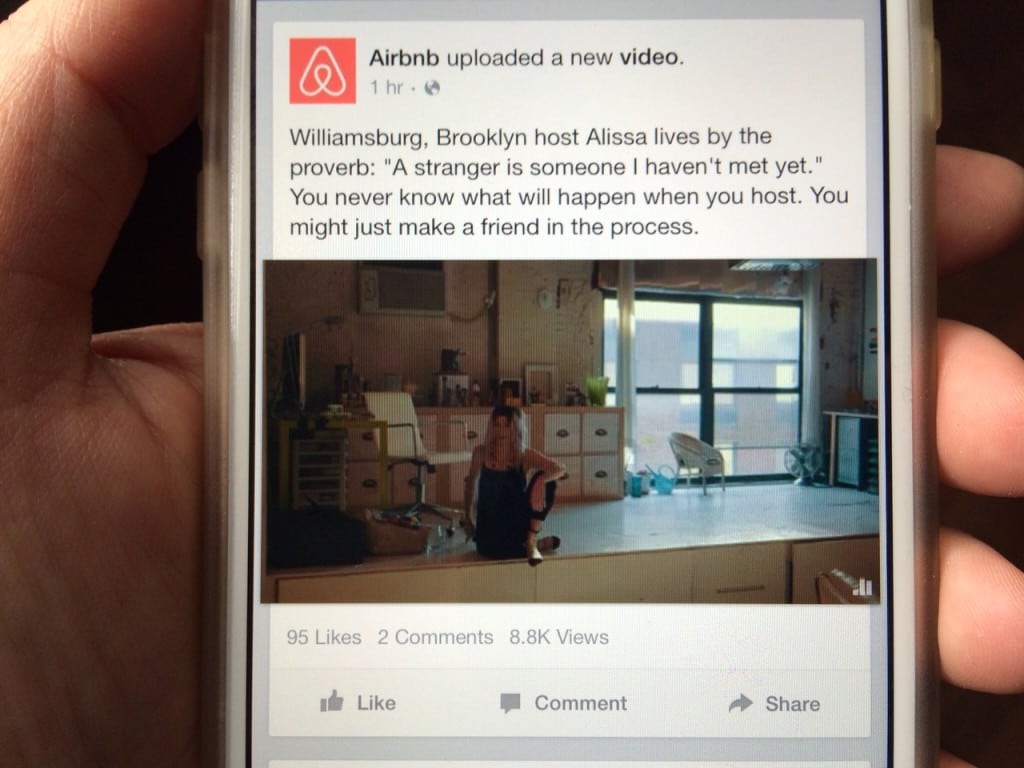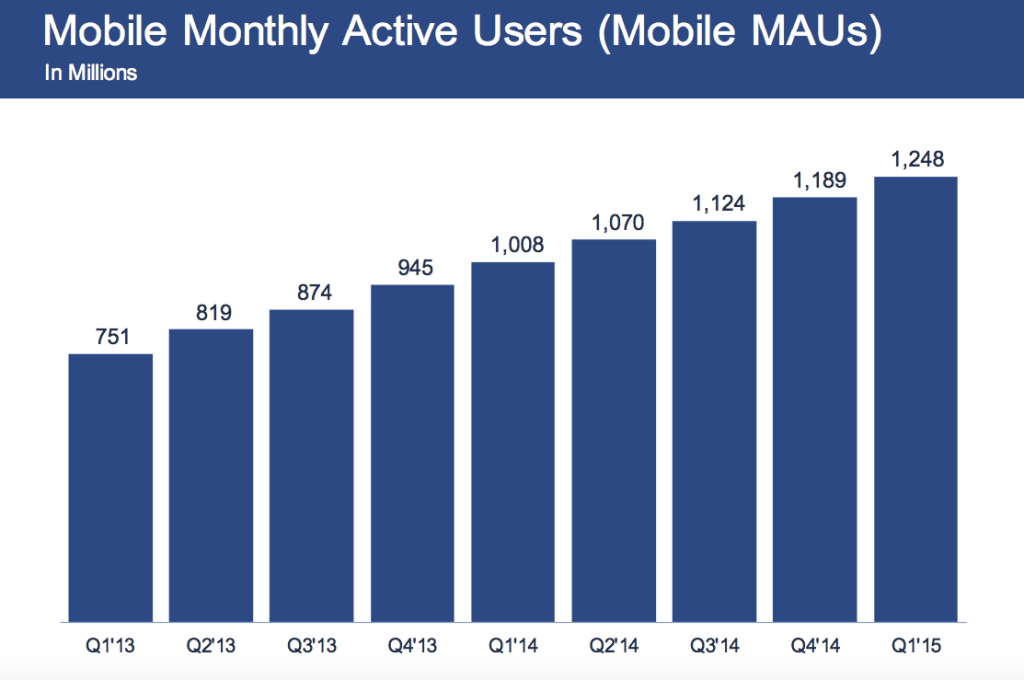Skift Take
Considering how mobile and video impact user experience and investing in Facebook's ads may actually be worth it, given the small pool of brands that pay.
With Facebook favoring more content from friends in its news feed, there is a decreasing chance that posts from the 30 million active business pages will ever get seen.
But that isn’t all negative. In its first quarter earnings call yesterday, officials stated that only five percent of active businesses on Facebook are paying to advertise. Travel brands that pay to get their message out during this stage have a good chance of building brand awareness, affinity, and increasing conversions from Facebook’s 1.44 billion logged-in users — slightly higher than 1.39 billion in the fourth quarter.
There is no question that Facebook is developing its ad technology and making ads more relevant to increase its advertising revenue.
Facebook is in a position to increase the impact of paid posts because there will be less competition from the organic posts — albeit organic reach is near zero — from brands that users already have an engagement history with.
With that said, the potentially higher impact of ads will most likely translate to higher cost per 1,000 impressions (CPM) and cost-per-click (CPC).
Mobile
In the U.S., Facebook and Instagram get more than one out of every five minutes spent on mobile. “As consumers shift to mobile, businesses are following and we are focusing on helping them take advantage of this opportunity to use mobile to build their businesses,” said Sheryl Sandberg, COO of Facebook.
Users spent 21 minutes per day on Instagram. Its user base remained at about 300 million monthly active users. Search is still an area of opportunity for Facebook as it reported 1 billion searches per day on mobile.
Video is doing extremely well on the Facebook app whereby plays accounts for over 75 percent of activity on mobile. “We believe mobile video will become more important to marketers over time,” Sandberg said.
Travel marketers and others have the opportunity to also monitor and reallocate ad spend on the go with Mobile Ads Manager app. Officials didn’t disclose anything about adoption rates.
Video
By the end of the first quarter, Facebook was generating 4 billion daily video views per day in the U.S.
“A video view counts, once it’s been viewed for three seconds,” a Facebook spokesperson told Skift while declining to comment on how much autoplay contributed to this stat.
There is no doubt that Facebook is shaking up online and mobile video players. Since the most recent F8 developer conference, where Facebook unveiled the feature of embedding videos across third-party sites, more than 80,000 videos have been embedded.
Facebook acquired video ads platform LiveRail last summer. The platform enables travel marketers to target their content to mobile users more precisely with anonymized demographic information. This is a value add for marketers who want to leverage Facebook’s mobile users to connect with them with branded video content.
Messaging Apps
Mark Zuckerberg, Facebook’s CEO, confirmed during the earnings call that Facebook has no intention of integrating messaging apps, including WhatsApp, Messenger and Groups. “We are not going to integrate them,” he said.
Facebook sees how different users all over the world treat WhatsApp and Messenger, with WhatsApp being used more to send text messages while Messenger is more a tool for expression.
Status of Payments on Messenger that allows friends to send each other money, was not mentioned during the call.
Messenger and WhatsApp were big winners in increasing their MAUs, with each gaining roughly 100 million. Messenger finished the quarter with 600 million MAUs and Whatsapp had 800 million.
On average, users send more than 45 billion messages daily. Airlines and hotels need to pay close attention to how Messenger might evolve into being an option to handle inquiries on Facebook, something akin to the way travel brands handle customer service problems from flyers and guests on Twitter.
Not only does Facebook already know what users like, but eventually, it will get close to knowing how they feel. Sandberg talked about targeting by interest, and with enough people expressing themselves on the platform, serving that ad will eventually become even more personal.
The Daily Newsletter
Our daily coverage of the global travel industry. Written by editors and analysts from across Skift’s brands.
Have a confidential tip for Skift? Get in touch
Photo credit: One of Airbnb's branded videos seen in-post on Facebook's News Feed on a smartphone. Skift / Airbnb

